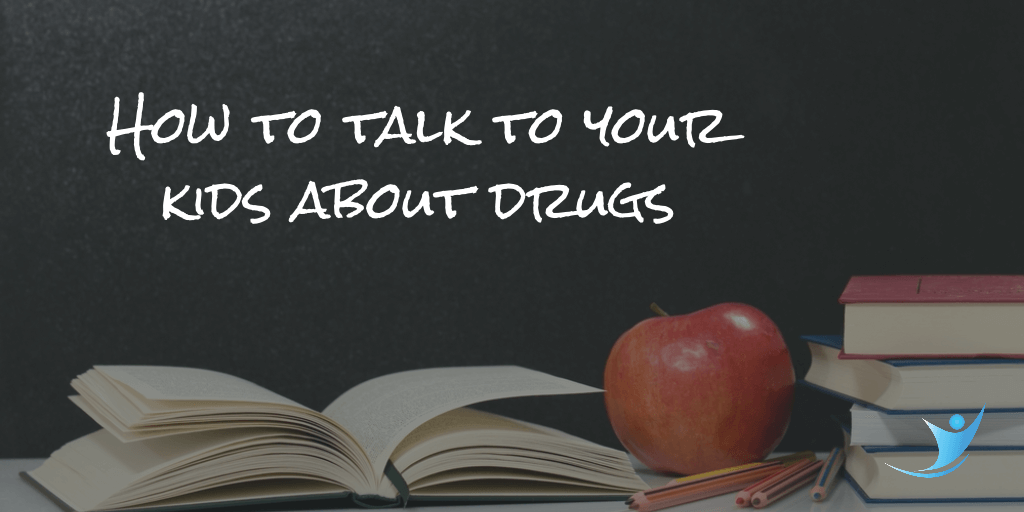Table of content
JOIN FREE GROUP
All About Recovery
Facebook Group • 2213 members
There's always clouds before the rainbows. Join many others who are going through the same thing as you and see proof that it can get better.
JOIN FREE GROUP How To Talk To Your Kids About Drugs

With back to school just around the corner and the opioid crisis resulting in a record number of overdoses and emergency room visits, now is as good a time as any to open, or reopen, the dialogue of how to talk to your kids about drugs.
 Which communication approaches work and which do not work when engaging in conversations with our kids about substances? Why do people use substances?When engaging our kids in conversation about substance use, it serves us as parents to know the differences between substance use, misuse and abuse.
Which communication approaches work and which do not work when engaging in conversations with our kids about substances? Why do people use substances?When engaging our kids in conversation about substance use, it serves us as parents to know the differences between substance use, misuse and abuse.Understanding Substance Use, Misuse and Abuse
First off, let me clarify what I mean by use, misuse and abuse.Substance use would include using a specific medication, or substance, as prescribed or intended. For example, using Tylenol as prescribed for a headache. Misuse would be if an individual started increasing the frequency or dosage of the prescribed instructions or if they used for reasons other than what the substance is originally intended for, eg. Taking 6 Tylenol’s because I feel overwhelmed at school. Substance abuse is when there is a prevalence, or a pattern of this misuse.So, how to talk to your kids about drugs?
Understanding the difference between use, misuse and abuse is important because it guides parents towards real and factual conversation about drugs and alcohol. A common trend for parents when discussing drugs with their kids is to embellish and provide overwhelmingly negative data with the hope that this information will serve as enough of a deterrent to scare their children away using drugs and alcohol.These scare tactics serve only to present the parent’s position to our children as unauthentic, disingenuous and dishonest. Once you lose credibility with regards to topics as important as this, it is very hard to regain their ear let alone their trust. The scare tactic approach results in most subsequent dialogue being dismissed in the future.I have years of experience working with youth ages 10 to 25. As a father of two adult children and with my experience talking to kids in the classroom and in the addiction treatment environment, I can tell you that the Regan era Just Say No and This is Your Brain on Drugs methodologies do not work.Eggs fry as soon as they touch a hot surface, but what does this have to do with kids who have seen their friends smoke a joint or drink a beer and nothing bad happened? An egg and a hot pan are very different than a person’s brain and a beer, or a brain and a benzodiazepine. This information serves as a disconnect from reality and the underlying message is both lost and discredited almost instantly.When a parent presents the notion that if you smoke marijuana, you will lose your memory, never be motivated to be successful or ruin your life, it discredits from the possible life experiences that the youth may know. A person who already uses or has used marijuana, that did not lose their memory, they didn’t die, they didn’t quit school or work and that person may even be quite successful.What happens next is that the parent’s view of the substance comes into question and then is often disregarded as nothing more than a manipulative tactic to further control and to have decisions made for them. During your discussion with your child about drugs, it’s important to include a balance in the information. This helps to prevent your discussion as being viewed as biased and with an ulterior agenda.The question that needs to be answered: What do people get from using drugs?
It seems very unlikely that the number of people that abuse substances would do so if all that happened were the short and long-term negative effects, deteriorating health and other adverse consequences. Although there is a high probability of these aforementioned symptoms occurring with substance abuse, it only presents as part of the story. Despite these negative effects and consequences, what is glaringly absent from the majority of discussions with our kids is What do people get from using drugs?People use drugs as a solution to an already existing problem, malady or situation. Having a discussion with your child about the reasons people use drugs can be even more important then the discussion about the substance itself.Talking together is the best way to understandWhile substance use is often attributed to escaping or numbing from something painful (feelings, emotions, physical pain), sometimes the core or underlying issue can be boredom, celebration, thrill seeking and or the need for chaos.As a Certified Addictions Counselor, when I am learning about a client in a one on one session, many times I hear “I was a good kid, from a good family, I had everything provided for me and I never experienced any kind of traumatic event… I don’t understand why I feel the need to use?”.When identifying underlying issues, for which substance abuse is the symptom of, it sometimes becomes quite apparent quickly as to why a person is using drugs or alcohol. Sometimes we must delve a little deeper however. Issues of mental health can take some time to identify but talking together is the best way to understand. Observing patterns of when a person uses, in which situations, and what feelings and emotions they are experiencing prior to use is very critical.With this healthy dialogue, we will get a better understanding of why the youth is using….- Is it after getting a good mark on an exam?
- Winning the big game?
- Receiving acceptance from their peers?
- Is it when there was nothing else to do?
Young people want to establish independence in the decision-making process
Part of youth development is being able to explore one’s independence and revelling in the idea of making one’s own decisions. For many kids, teens and young adults, most decisions in their life have been made for them, on their behalf, or for their best interests.When it comes to substances, this is often viewed by youth as an opportunity to make a decision for themselves independently of their parents or authoritative caregiver.So how do we talk to our kids then?Like any conversation, it is best to be as prepared as possible by educating yourself. In this digital age, kids are more informed than ever before about the pharmacology and the biological effects of different substances. Kids may have the knowledge base to experts about the substances you are about to engage a conversation about. Some might even have the recipes and formulas to manufacture certain drugs!Know the language, know some facts about the substance that you are going to discuss.Kids want to know about the here and now, like acceptance by peers at school
Secondly, speak to your kids in the present tense. Kids live in the here and now.Brain development in the Prefrontal Cortex is still under construction until a person is approximately in their mid twenties. The Prefrontal Cortex is the part of the brain is what weighs outcomes, forms judgments and controls impulses and emotions. For adolescents, long term effects and consequences are most often an afterthought. Young people want to know about the here and now. One year in the future seems like an eternity to a youth and is not very relevant towards making the decisions of today.Many kids are focused on their image and their social status and acceptance with peers. Their views and opinions of substance use are often attached to the views of the peer groups in which they are seeking acceptance from. A good habit to get into while talking with your kids is by asking “What do you think….?” “Do you know any kids at school that are…? “Hey, have you ever come across a situation at where….? This kind of communication is inclusive rather than didactic. Asking open ended questions promotes discussion and the sharing of information rather then short abrupt “yes or no” answers.Anytime a parent asks their child for feedback concerning a decision, it empowers them and makes them feel part of the process. Your child will be much more onboard with making an informed and educated decision with regard to substance use if they feel as though the decision is coming from themselves and from their own analysis.This is an extremely good opportunity to discuss issues of mental health, self esteem, or feelings of inadequacy or feelings of “less-than”. People use substances of all kinds to escape from these painful, emotions or feelings. From grief, trauma, the absence of acceptance and from physical pain.Here is a golden opportunity to make yourself available to your child to not only highlight why people engage in substance use but to open dialogue and let them know that they can talk about themselves and their emotions and feelings with you. Sometimes talking helps us to understand ourselves better.Understanding ourselves will ostensibly help us make better or healthier decisions for ourselves. Talking to your kids about drugs can be an excellent way to promote healthy communication with your child and let them know that you are there for them without judgement.Peer Influence
As it was twenty years ago, one hundred years ago, and even before, Peer Influence is a part of youth’s development. This can be both a positive and negative factor in your child’s life. Peer Influence can motivate kids to join a sports team, study on a Thursday night or try an audition for the drama club.Sometimes, however, it can put our kids into situations where riskier decisions are put before them. The best way to prepare kids for this is to take a proactive approach and have these discussions in advance. Peer influence is very powerful and it can result in your child making a decision that may not align with their own views or values simply because being accepted is a much stronger impetus in their decision making.Resiliency is a person’s ability to overcome challenges. By discussing protective factors and risk factors and we are promoting resiliency. Peer influence will undoubtedly be a contributing factor in your child’s decisions both positively and negatively.[su_table]| Risk Factors | Protective Factors |
| Low self esteem | Healthy self esteem |
| Disorganized or disrupted home or family stressors (poorly defined rules etc.) | Nurturing attachment to parent(s) / caregiver |
| Physical, Emotional, Sexual abuse | Drug education in schools |
| Substance use amongst friends/peers | Limited exposure to drug availability in community |
| Exposure to drug availability in community | Positive, quality relationship with at least one other adult other than parent |
| Youth’s perception of drugs harm/risk | Feeling of acceptance and connection (school community, social clubs, sports, extracurricular activities) |
| Major transitions in youth’s life (divorce, entering high school, changing schools | Effective and accessible parental communication |
| Substance dependency of parent(s) or family member | Adequate housing |
| Large, overcrowded family | Good problem-solving skills |
| Mental health Issues | Socially adept |




